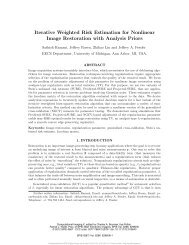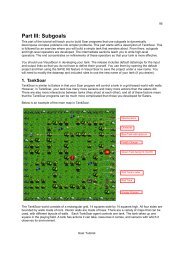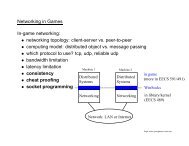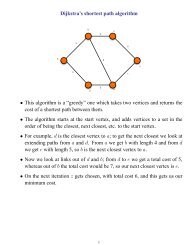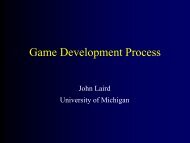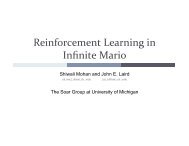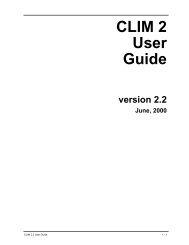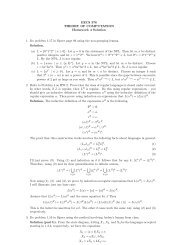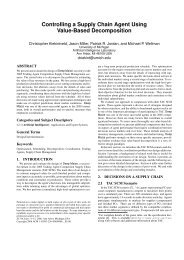EECS 203-1: Discrete Mathematics Winter 2005 Introductory ...
EECS 203-1: Discrete Mathematics Winter 2005 Introductory ...
EECS 203-1: Discrete Mathematics Winter 2005 Introductory ...
Create successful ePaper yourself
Turn your PDF publications into a flip-book with our unique Google optimized e-Paper software.
Translating English to propositional logic<br />
• Because English has compound propositions, it’s sometimes possible to<br />
phrase these propositions as formal propositional expressions and to build<br />
truth tables therefrom. This is a bit inexact, and there is very often more<br />
than one way to do it. There’s a way to test whether two translations are<br />
equivalent, though.<br />
• Example from text: “You cannot ride the roller coaster if you are under 4<br />
feet tall unless you are older than 16.”<br />
• We find the basic propositions in this informal expression and assign them<br />
propositional variables: “you can ride the roller coaster” is assigned r,<br />
”you are under 4 feet tall” is assigned u, and ”you are over 16” is assigned<br />
o. Then the English sentence before ”unless” would translate as ”u → ¬r”.<br />
• But what about the “unless” part Here o qualifies u in the sense that if<br />
somebody is under 6 feet, and not over 16, then they cannot ride. So a<br />
correct translation is<br />
(u ∧ ¬o) → ¬r.<br />
• How about (u → ¬r) ∧ (o → r) Is this the same What does “same”<br />
mean To be continued in the next lecture.<br />
10



